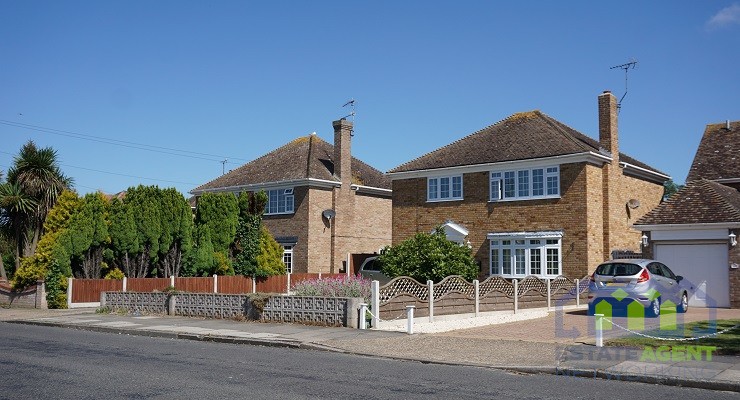Home is where the heart is: Letting to family members
For today’s younger generations, climbing the property ladder is becoming more difficult than ever before. Renting has become the norm, and the proportion of income now spent on rent varies widely across the UK. In London, the average is a staggering 85% for a single income, with Brighton (58%) being the next most expensive place to be a tenant. In Derby, on the other end of the scale, the figure is as low as 23%.
Parents or other relatives who are in a position to help their kids can make everyone’s lives a lot more comfortable, plus potentially achieve good financial returns in the process. As a Parent Landlord, have you thought about investing in a buy-to-let and rent it to your children?
Whether you already own a rental property or are buying a flat or house specifically for letting purposes, renting to a family member may seem like a convenient option for all concerned. There are, however, important issues to consider before you make that decision, not least if the property is mortgage. And just because they’re family doesn’t suddenly turn your children into model tenants…
Let’s take a look at what’s involved.
Which is the right mortgage?
The decision to rent to family members materially affects your choice of mortgage. With a normal buy-to-let mortgage, you need to show that the rent on the property is at least 125% of the mortgage interest. However, if you wish to let the property to close family members – your children, parents, grandparents or siblings – tighter rules apply.
Rather than a conventional BTL mortgage, you will have to take out a ‘family buy-to-let’ or ‘regulated buy-to-let’ mortgage which is regulated by the Financial Conduct Authority and works much like a standard residential mortgage. There are fewer lenders offering this type of mortgage, the interest rate will be higher and you need at least a 25% deposit. Rather than taking the rent you will receive into account, the mortgage company will assess your application based on standard affordability criteria.
If you decide to stop letting the property to a family member, you should let your lender know. You may need to switch to a different mortgage.
Do you need a tenancy agreement?
Whether or not you are renting to a family member, having a valid tenancy agreement in place is essential. This is a document that sets out legal requirements for both landlord and tenant, and the rights and responsibilities for each. Once signed, you will both be clear as to what is expected of each party, preventing potentially awkward conversations and misunderstandings further down the line.
You may well trust your children or other family members more than any other type of tenant and fully expect them to pay their rent on time and take good care of the property. You may also give them softer terms and charge less than the market rent, purely on account of the fact that they’re family. However, if disagreements should arise and, perish the thought, you wish to formally evict your children from your rental property, this will be much harder to do without a tenancy agreement.
You should also ask for a deposit prior to occupancy to allow for any accidents, furniture breakages, stained carpets or other damage as well as protecting against unpaid rent. There are three government backed tenancy deposit protection schemes to choose from to comply with the recently introduced 30-day-deposit legislation.
Finally, it’s a good idea to carry out tenant referencing (including a credit check) on your prospective family tenants. That way, you will get official confirmation that they are able to pay the rent in full and on time, and have the peace of mind that a reference was provided by a previous landlord.
How much rent should you charge?
Determining what is the appropriate amount of rent to charge your children or other family members can be tricky. Should you demand the market rent or reduce the amount because your tenants are part of your family? Start by looking at the local market and comparing rental rates of properties that are a similar size and having comparable amenities to yours to get a benchmark figure.
Whether you ask for the full market rent, a reduced amount or no rent at all, it is of course entirely up to you to choose what you are comfortable with and what your financial circumstances (including any mortgage on the property) will bear.
Any income you do receive from the property will be subject to taxation. HMRC’s Property Income Manual is a valuable source of information. If you are a professional landlord, there may be Class 2 National Insurance contributions to pay too.
Other landlord responsibilities
Whether your tenants are family, friends or total strangers, you have a responsibility as a landlord to ensure the rental property is safe. This includes having an annual gas safety checks on the boiler and other gas appliances, installing smoke alarms on every floor and ensuring all electrical appliances are safe. The property must also have a valid Energy Performance Certificate (EPC), a copy of which should be given to the tenant when they move in.
What’s more, if the house or flat is a House in Multiple Occupation (HMO), additional rules and safety checks apply. Your property will be classed as an HMO if there are three or more tenants who don’t all rent together under one tenancy agreement and share bathroom and kitchen facilities. If there are five or more tenants, you need to have an HMO licence.
Finally, it’s a good idea to keep on top of maintenance issues, scheduling any jobs that need to be carried out early and dealing with them before they can turn into bigger and more costly problems. Having the right level of landlord insurance covering property damage, missed rental payments, legal costs and even personal injury will provide the additional peace of mind of knowing that you’re covered for all eventualities.







